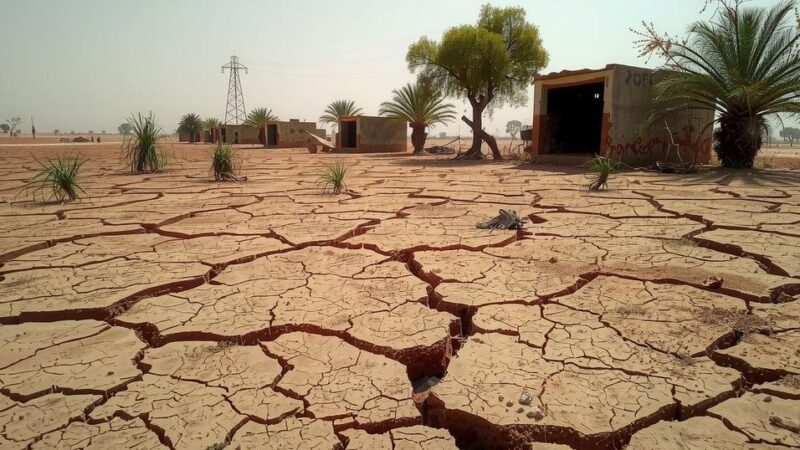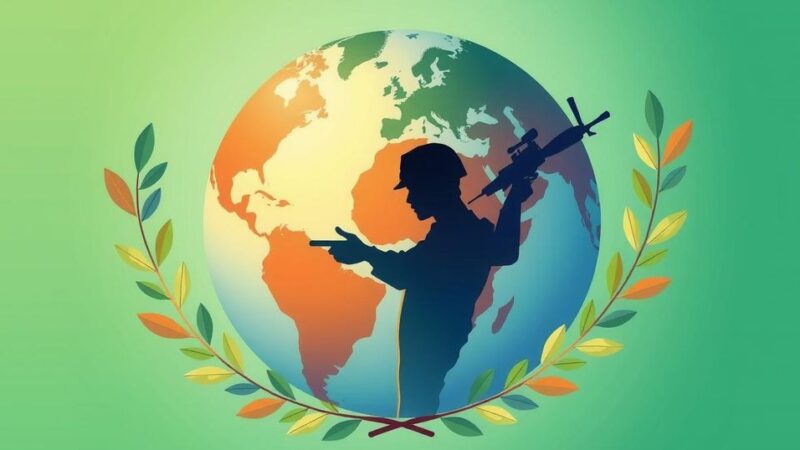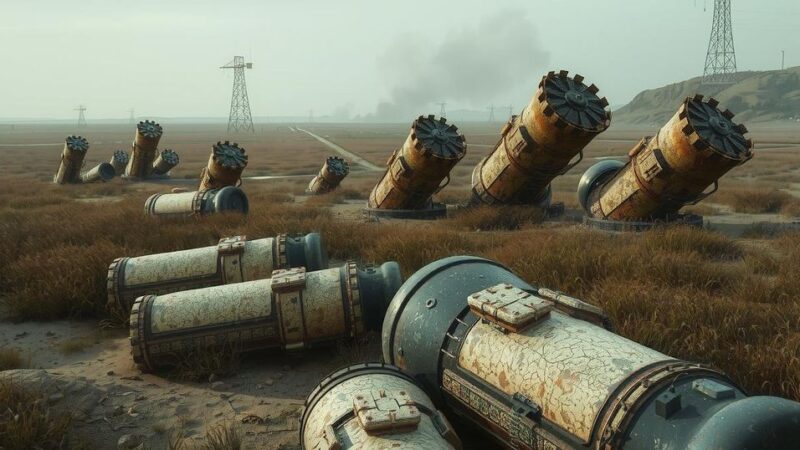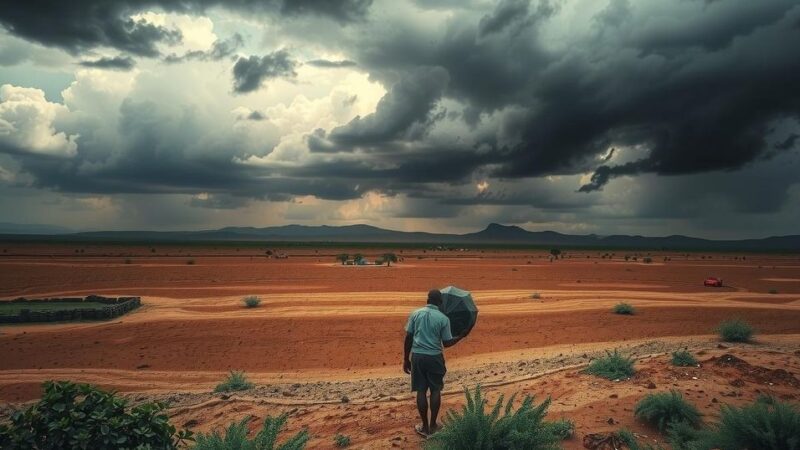Sudan faces a devastating humanitarian crisis with mass killings and ethnic genocide, leading to over 10 million displaced individuals. Despite the dire situation, the international response, particularly from the U.S. and Israel, has been largely passive. The instability in Sudan poses significant threats to regional security, necessitating immediate global action and leadership, especially from the U.S., to address the ongoing genocide and restore stability.
A profound humanitarian crisis unfolds in Sudan, characterized by ethnic genocide and a staggering number of over 10 million displaced individuals. The ongoing civil war, which began in April 2023, pits the Sudanese Armed Forces (SAF) against the brutal paramilitary group, the Rapid Support Forces (RSF). Despite evident atrocities, major global powers, including the United States and Israel, have remained significantly uninvolved. Such neglect places Sudan’s suffering in the shadows, overshadowing urgent calls for intervention.
In January 2025, the United States formally identified genocide perpetrated by the RSF against the non-Arab Masalit community in West Darfur. Humanitarian reports detail mass killings, widespread sexual violence, and the systematic targeting of civilians, resulting in the slaughter of tens of thousands. The crisis has escalated to unprecedented humanitarian disaster levels, with entire cities destroyed and an alarming displacement crisis overwhelming neighboring countries.
Despite the horrific nature of these events, the international response has been disappointingly inadequate. The United States has prioritized other geopolitical issues, leading to minimal actions beyond symbolic condemnations. As a nation historically leading in addressing such crises, this inattention could have long-term ramifications, jeopardizing both regional and global stability.
Sudan’s crisis threatens dire consequences, including the rise of jihadist networks and arms trafficking, which could extend conflicts beyond its borders. The impending collapse of Sudan jeopardizes political stability in the Horn of Africa and disrupts vital trade routes in the Red Sea, crucial for global commerce. Failure to address these issues may allow extremism to flourish in the region, posing significant security threats.
For Israel, Sudan’s crisis presents critical strategic implications. The prospect of a destabilized Sudan compromises Israel’s interests in Middle Eastern stability, especially following Sudan’s alignment with the Abraham Accords in 2020. This inclusion offered a potential regional ally against extremism, which diminishes with Sudan’s descent into chaos.
The fallout from Sudan’s instability could foster an environment where extremist groups thrive, adversely affecting neighboring countries such as Egypt, a vital partner for Israel. Consequently, the Israeli government must acknowledge these risks, recognizing how Sudan’s turmoil impacts its own national security.
Sudan’s internal struggles have evolved into a geopolitical tussle, with the RSF receiving support from Gulf nations, notably the UAE. This intervention raises alarms about regional stability and complicates Israel’s own relationships amid the shifting dynamics. Furthermore, Sudan’s pursuit of legal action against the UAE showcases the conflict’s complexity as external actors exacerbate the crisis.
In light of these developments, the United States is called upon to lead an international response to the Sudanese crisis, encouraging diplomatic measures and fostering multilateral relief efforts. By partnering with Israel, the United Nations, and regional stakeholders, the U.S. can help coordinate a comprehensive strategy aimed at addressing ongoing violence and restoring stability.
It is vital for the United States to transition from mere condemnation to active support, encompassing sanctions, humanitarian aid, and diplomatic solutions to alleviate Sudan’s plight. Without a united global effort, the situation in Sudan is likely to continue deteriorating, perpetuating suffering and regional instability.
The crisis in Sudan epitomizes a severe humanitarian catastrophe that demands urgent intervention. With over 10 million displaced individuals and ongoing genocide, global powers, particularly the United States and Israel, must take decisive action. The failure to do so jeopardizes not only Sudan’s stability but also exacerbates risks of extremism that could destabilize surrounding regions. A coordinated international response is imperative to prevent further escalation and foster a peaceful resolution.
Original Source: www.ynetnews.com






